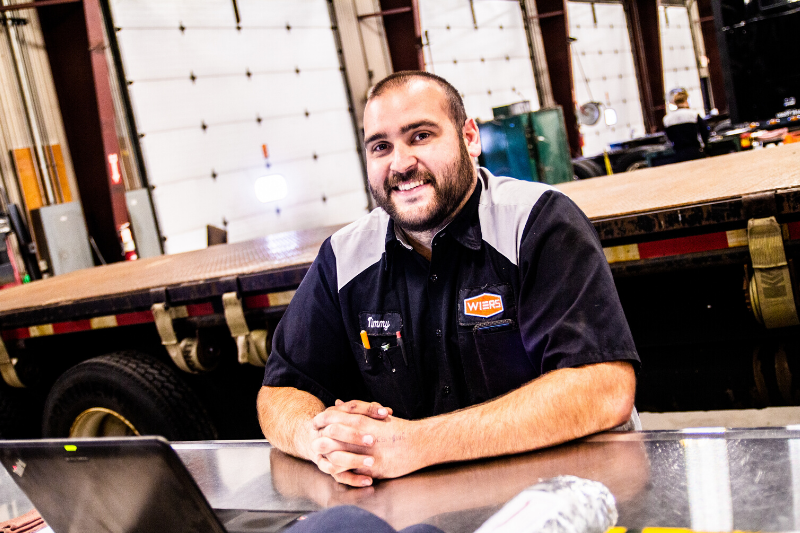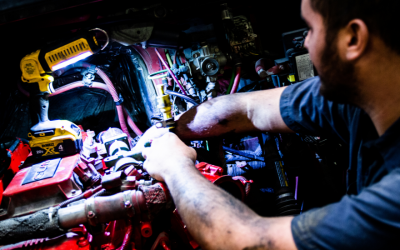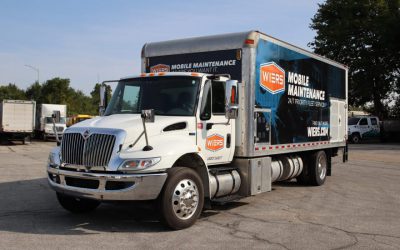
Preventative maintenance is something that no cost-effective fleet cannot operate without. Wiers Fleet Partners enjoy easy-to-read Preventative Maintenance Inspection Reports that include pictures of your truck and the deficiencies found. For those who aren’t yet a Wiers Fleet Partner, Tom Wiers, CEO & Owner, caught Tim, one of our Diesel Technicians, in the shop to discuss diesel engine EGR and after treatment systems, routine maintenance, truck maintenance intervals, and what to pay attention to on your own truck. Here is that conversation.
Q&A:
(Tom): Hey, good afternoon everyone. We’re having a series of discussions about after treatment systems and trying to help our customers understand some of the challenges associated with these systems. Tim and I are just going to walk through a couple of common issues here. The after treatment systems on these trucks started around 2007?
(Tim): Yep, there was a very big system in ’07. Over the years – 2010, 2013 – missions have changed and they’ve become quite complicated.
(Tom): Yeah and I can see just by looking at all the details and electrical there’s a lot going on here. In your video, you talked about the recommended maintenance cycle on the Diesel Particular Filter, the DPF, is about 250,000 miles. Is that always the case?
(Tim): That is not always the case, depending on your application. For example, we see a lot of school buses, garbage trucks with low miles per hour that have a lot of idle time or at least low speeds, have a lot more issues than other over the road trucks.
(Tom): So if 250,000 miles isn’t right in your application, what would be some of the leading indicators that maybe there is an issue with soot building up in the DPF system?
(Tim): It’s all about just paying attention to your truck. You just need to know your equipment. If you’re experiencing more frequent regens than normal, if you experience a little bit of low power or any type of engine light or something like that, these are all indicators maybe you need to have your truck brought in. There are things we can do as far as servicing that can help prolong that or we can figure out if there are other issues that need to be addressed right away.
(Tom): So if I’m a typical customer, I’m in the metro area, and my driver comes in and says hey you got the check engine light on, it seems like my truck’s going into the regen mode more often, what would you do if I’m the one responsible with the maintenance of that truck? What would you recommend I do?
(Tim): We have various things on our computers that we can hook to the engine. There are regen analyzers that we can use to see how temperatures are reacting, how different parts of the engine that the regen needs to see are reacting, and we can find failed components or components that are wearing out making it not as efficient as it should be.
(Tom): What I’m hearing you say is I should take that as an important indicator the driver’s telling me there’s a check engine light – I need to do something, I shouldn’t just ignore it.
(Tim): Yes. The longer you let something go, the more problems it’s going to cause down the road. Even if it starts up here as just a small AGR valve issue, say that AGR valve sticks every now and then… over time that’s going to plug that DPF filter up very prematurely and cause more issues like low power and honestly it just makes the equipment work that much harder. And we do know that these filters inside there are fairly expensive – anywhere from $1,500 to almost $3,000 so if they’re not properly maintained, not only is the truck not going to be doing its job improperly but then you’re looking at more costly repairs as well. Catching them sooner is just going to better. That’s all there is to it. You’re going to catch it before and possibly not have to replace that and just be able to clean it instead.
(Tom): Fantastic. I appreciate your time your expertise. You have years of experience working on this equipment and it’s getting more technical. We say that, today, truck service is rocket science, so thanks!
How can you improve your preventative maintenance?
To learn more about how Wiers can help you with preventative maintenance and more, please click here, and to watch the conversation on video, click here.










